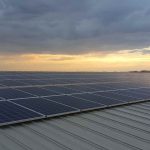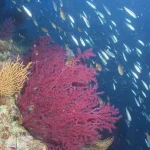When it comes to energy efficiency in Croatia, there is no doubt anybody cares about it more than the scientific community working and associating with Energy Institute Hrvoje Požar (EIHP).
Not only is the EIHP building on its way to becoming the first nearly zero energy building in the whole of the country, but EIHP’s expertise also plays a big role in REPLACE Project from Horizon Europe. As TCN previously covered, the project aims to make Primorje Gorski Kotar County energy-renewable territory, and the ongoing meetings about the project (in collaboration with the University of Rijeka) see slow but steady progress in those respects.
As EIHP reports on its website, June 23 saw REPLACE Project presented in the congress hall of Rijeka’s Jadran Hotel as part of the final workshop of the JOINT SECAP project.
„On behalf of EIHP, Antonia Tomas Stanković presented REPLACE in the second half of the event. The goal is to support European energetic, climate, environmental, economic, and social goals by 2030 and 2050 by encouraging the gradual replacement of inefficient and outdated cooling and heating systems with new, energy-efficient systems based on renewable energy sources“, informed EIHP.
JOINT SECAP, part of Interreg Italy-Croatia strategic program (much like the CASCADE Project TCN previously wrote about) aims to improve the climate change monitoring and planning of adaptation measures tackling specific effects in the cooperation area.
„The project idea reflects the necessity to operate at a wider district level and better define strategies and actions for climate change adaptation, especially for those weather and climate changes and hydrogeological risks affecting coastal areas. The first phase is developed to build the common methodology for Joint Actions definition and implementation and to share the basic knowledge about issues concerning climate change adaptation strategies and energy efficiency measures. The second phase starts upon the analysis uploaded in the web platform, acting as a useful tool for the development of scenarios for the Joint Actions to be implemented in the Joint SECAP plans, those last constituting the main project deliverable“, explained JOINT SECAP on its website. The workshop in Rijeka was the conclusion of the project as JOINT SECAP ended on June 30 after it began on January 1, 2012, with a budget of € 2,094,857.
The workshop in Rijeka, writes the EIHP website, was organized by Primorje Gorski Kotar County Office for Regional Development Infrastructure and Project Management and by Kvarner Regional Energetic Agency. Representatives of local authorities of Primorsko-Goranska county that were enrolled in creating an Energetic and Climate Sustainable Development Action Plan. These local authorities include towns such as Opatija and Kastav and the districts of Čavle, Matulji, and Viškovo.
„Joint SECAP analyzed energy spending for the included towns and districts, their risks and vulnerability regarding climate change, yearly emissions of CO2 in sectors of building construction industry, public lighting, and traffic. Concrete measures with the goal of adjusting to the effects of climate change and CO2 emissions down to at least 55% by 2030 were suggested“, stated EIHP.
With measures identified, the race with time begins as these measures should be in place as fast as possible to tackle one of the biggest challenges humanity is facing, and Croatia isn’t able to be isolated from the threat.
Learn more about Rijeka on our TC page.
For more about science in Croatia, follow TCN’s dedicated page.











